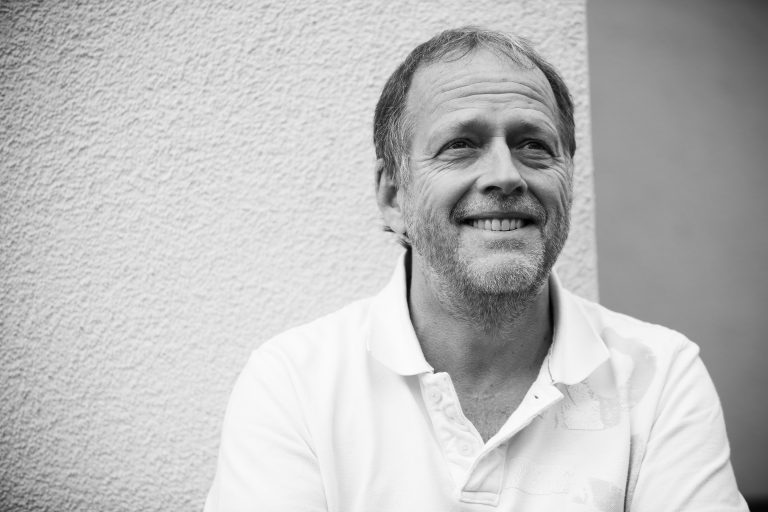I don't know what I found in Expressionism. I needed it, I tried to cope with it.
(FRITZ LANG)
What I find particularly interesting about film is the possibility of the artistic representation of content that can lie far beyond the depiction of everyday reality. This shows an essential parallel to music: the fascination that emanates from the irrational, i.e., what is not clearly explainable, is a great if not the most important criterion in both art forms.
Commissioned by Philharmonie Köln, 1990
INSTRUMENTATION
Part 1: Der große Spieler by Fritz Lang,
Ensemble: 2(2=afl.).1.Eh.2.bcl.1-0.2.2.0-perc(3)-hp-pno(2)-str.:4.0.2.2.0.
167 min.
FIRST PERFORMANCE
Cologne, 31 March 1991
Ensemble Modern, cond: Kaspar de Roo
Ensemble InterContemporain, cond.: Ann Manson, ZDF-ARTE 1996
rEVIEWS
“Durch geschickte Aufteilung in ausgedehnte Klangblöcke unterschiedlicher Dichte und expressiver Intensität lehnte sich (der Komponist) an gewisse dramaturgische Vorgaben der Bilderstory an, ohne im Detail der Untermalung zu fröhnen. Im Gegenteil brachte das leicht ironisch gebrochene Flair von Party-Klängen der zwanziger Jahre in den langen Klavier-Schlagzeug-Passagen jene Distanz zu Gehör, die auch den heutigen Betrachter beim Anblick der Bilder wohl ansprechen mag.
Die höchst diffizil konstruierten und mit breiter instrumentaler Farbpalette ausgestatteten Orchesterstücke zu den Schlüsselsequenzen reflektierten immer suggestiv und in sozusagen aktueller Sprache die atmosphärischen Gegebenheiten der Bilder wie ihre Denunziation von Gewalt und Verbrechen.”
“By clever division into extended sound blocks of different density and expressive intensity, (the composer) leans on certain dramaturgical guidelines of the picture story, without indulging in the detail of the background music. On the contrary, the slightly ironically broken flair of party sounds of the twenties in the long piano-percussion passages brought that distance to the ear, which may well also appeal to today’s viewer when watching these images.
The highly intricately constructed orchestral pieces during the key sequences, equipped with a broad instrumental color palette, always reflected suggestively and in, as it were, topical language the atmospheric conditions of the pictures as well as their denunciation of violence and crime.”
Bonner Generalanzeiger, Hans G. Schürmann, 3 April 1991 (on the world première performance, from the original German review)
“Großflöchig teilt Obst die . . . Musik in Ensemble-Begleitung und Klavier/Schlagzeug-Besetzung, ein auf die Länge des Films abzielender kluger Schachzug. Denn um so wirkungsvoller klingt der Orchesterapparat. Und in intimer Atmosphäre der Clubs und Bars sagt das Piano alles aus.
Die atonale Tonsprache – das ist nichts Neues – wird über das Bild plastisch und verständlich, selbst Geräusche wie das gekratzte Tamtam für hypnotische Kraft passen ins Konzept. Und die Zeit vergeht wie im Flug, dank der exzellenten Musik und in Folge des Hauchs von Authentizität, den die Aufführungen alter Stummfilme mit Live-Musik unwiederstehlich verströmen.
“With a broad brush, Obst splits the music . . . into ensemble accompaniment and piano/percussion instrumentation, a smart move aimed at the length of the film. For the orchestral apparatus sounds all the more effective. And in the intimate atmosphere of clubs and bars, the piano says it all.
The atonal tonal language – this is nothing new – becomes vivid and comprehensible via the image, even noises like the scratched tam-tam for hypnotic power fit into the concept. And time flies, thanks to the excellent music and as a result of the touch of authenticity that performances of old silent films with live music irresistibly exude.
Kölnische Rundschau, Olaf Weiden, 2 April 1991, (on the world première performance, from the original German review)
“Die schrillen Klänge, die neue Musik gemeinhin kennzeichnen, Flageoletts, Glissandi und Schlagzeuggeräusche, fügen sich passend zum expressionisteischen Inventar des Films. Dabei lässt Obst die Bilder leben, die Musik atmet mit ihnen…”
“The shrill sounds that commonly characterize new music, harmonics, glissandi, and percussion noises, blend appropriately with the film’s expressionist inventory. In doing so, Obst lets the images live, the music breathes with them…”
Kölner Stadtanzeiger, Gisela Gronemeyer, 3 April 1991 (on the world première performance, from the original German review)
Other music for multimedia:

About Michael obst
Michael Obst is a composer, pianist, and teacher. He began his successful composing career with electronic music and subsequently composed works for music theater, film and concert halls. His experience as a pianist with the Ensemble Modern, enriched his understanding of contemporary music. After 25 fulfilling years of teaching, he is now excited to once again concentrate on his own composition projects.
- INFO@MICHAEL-OBST.COM


